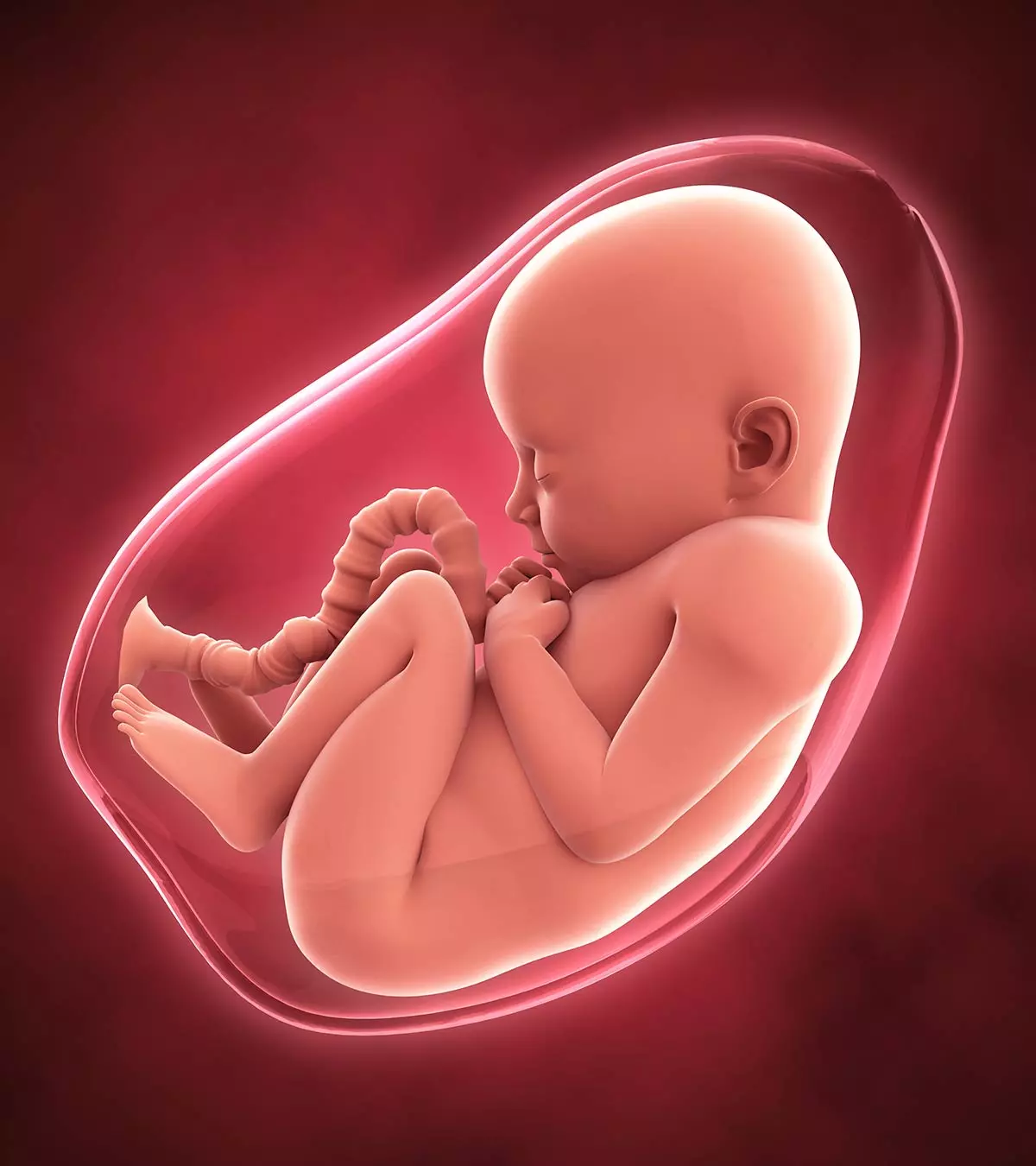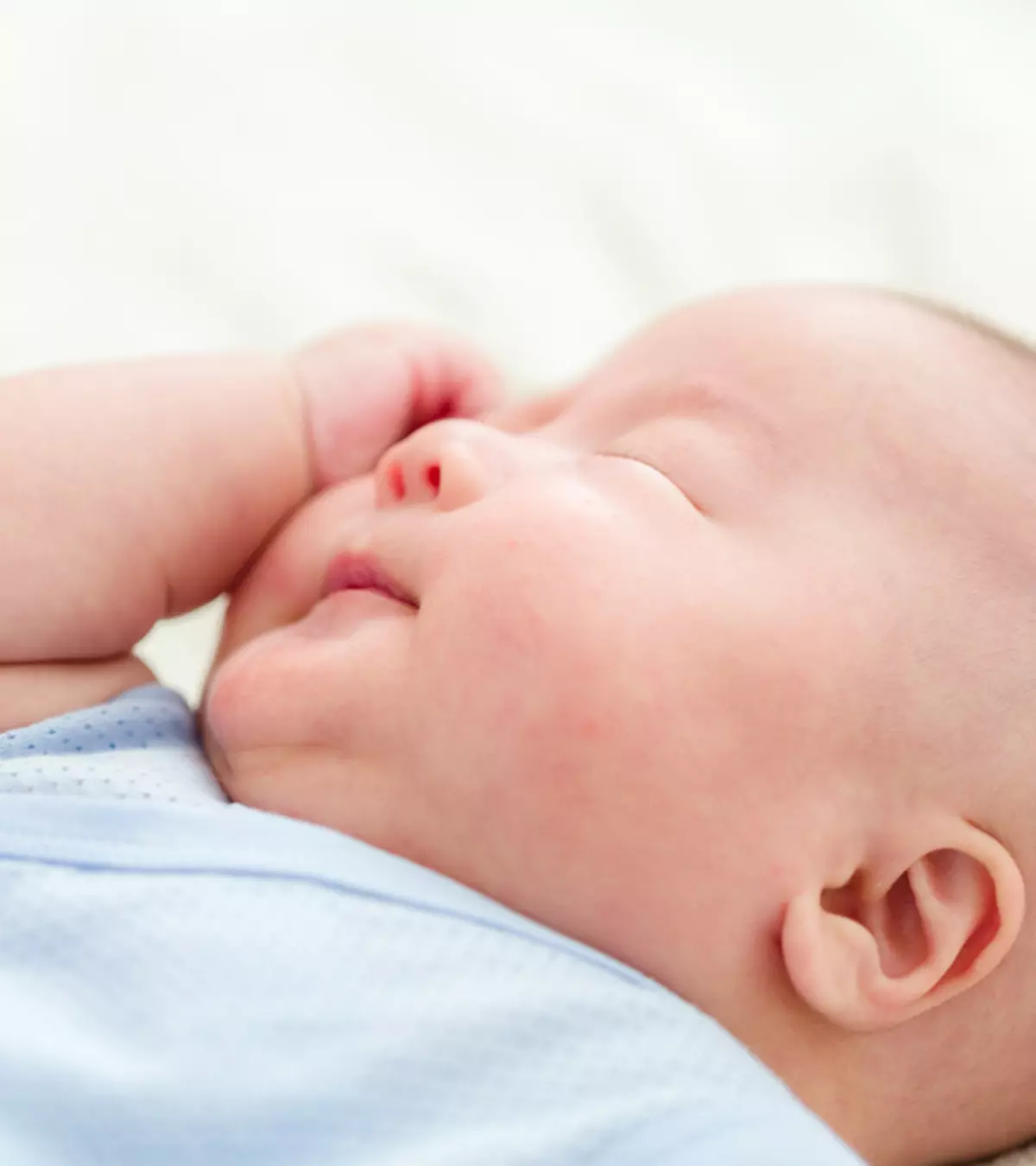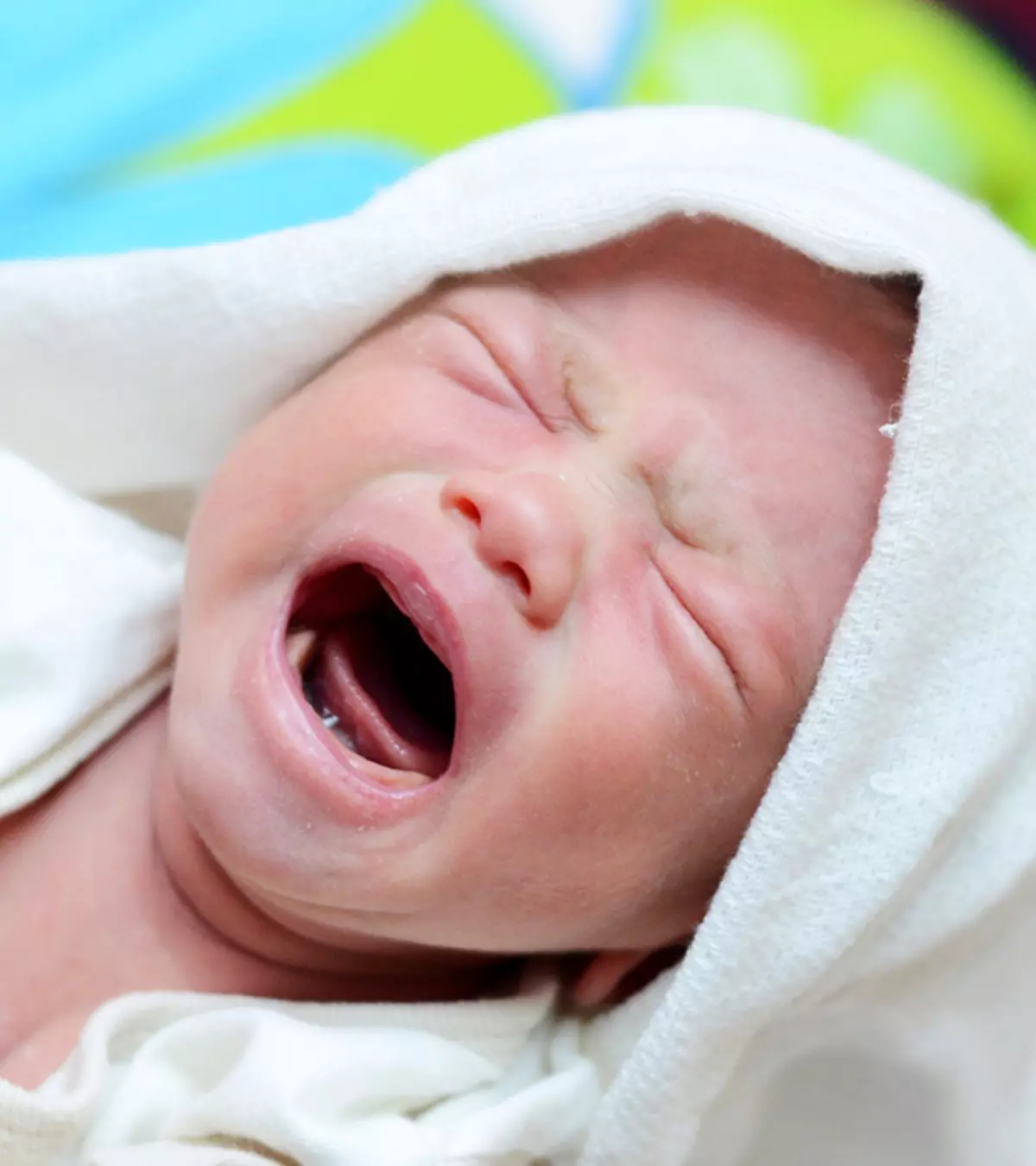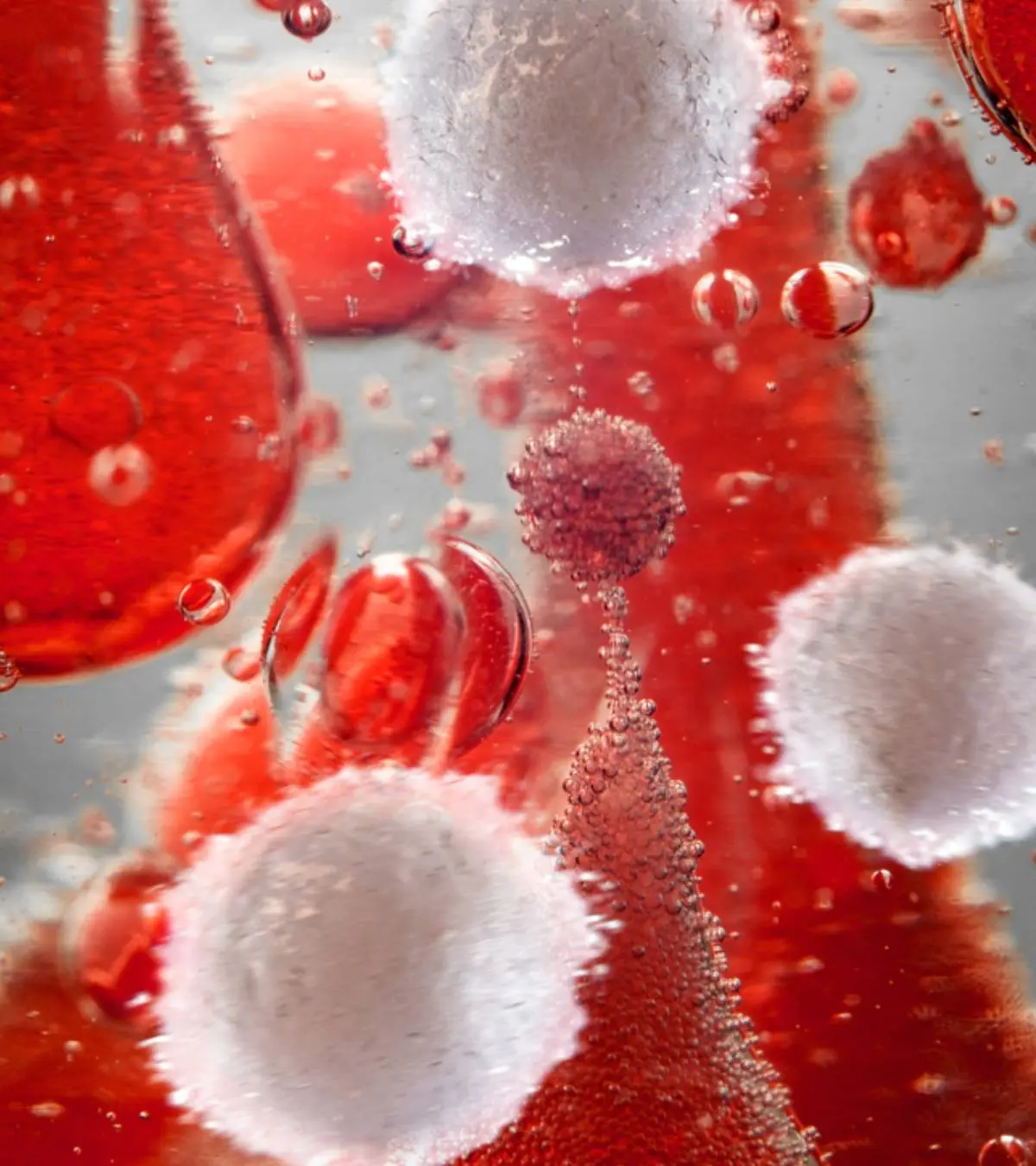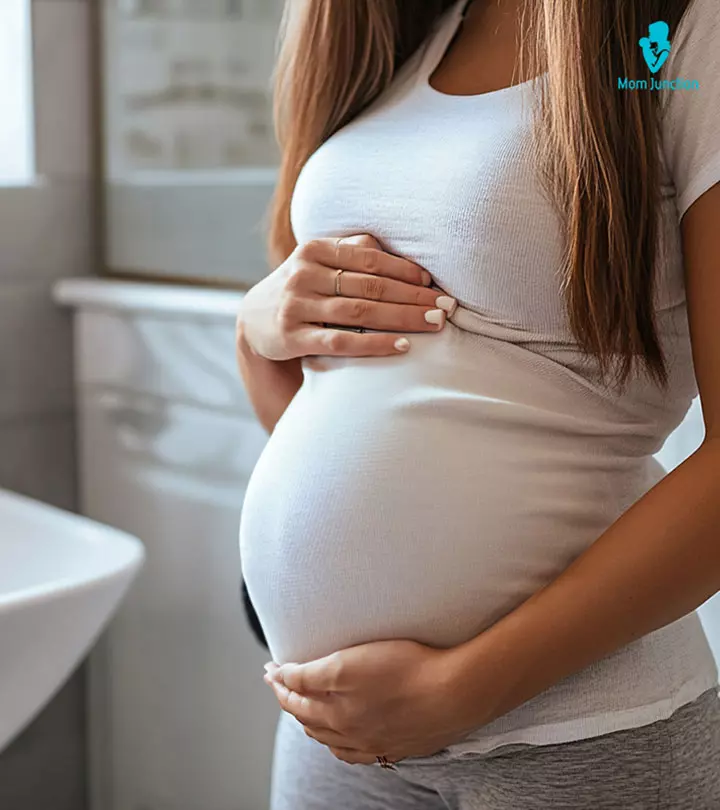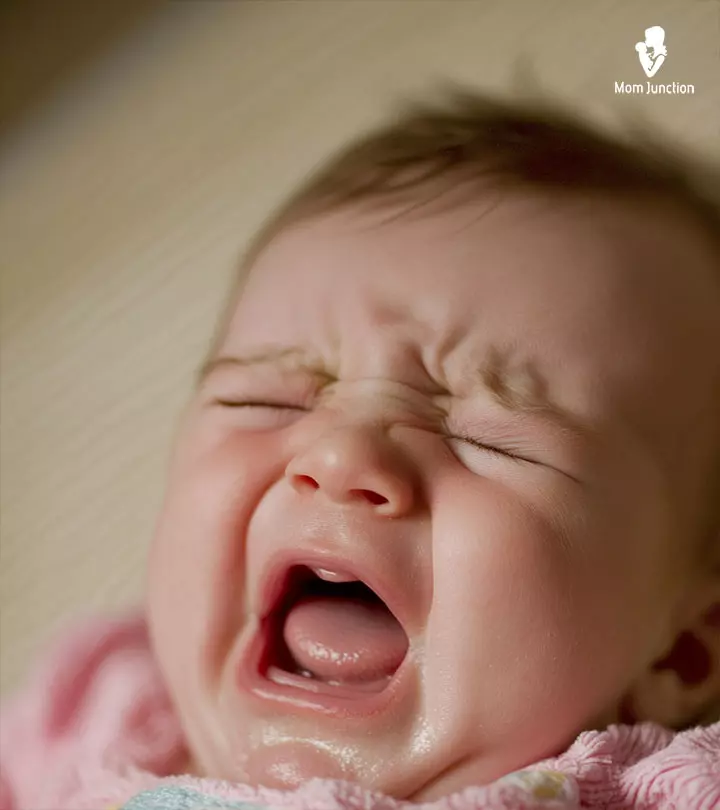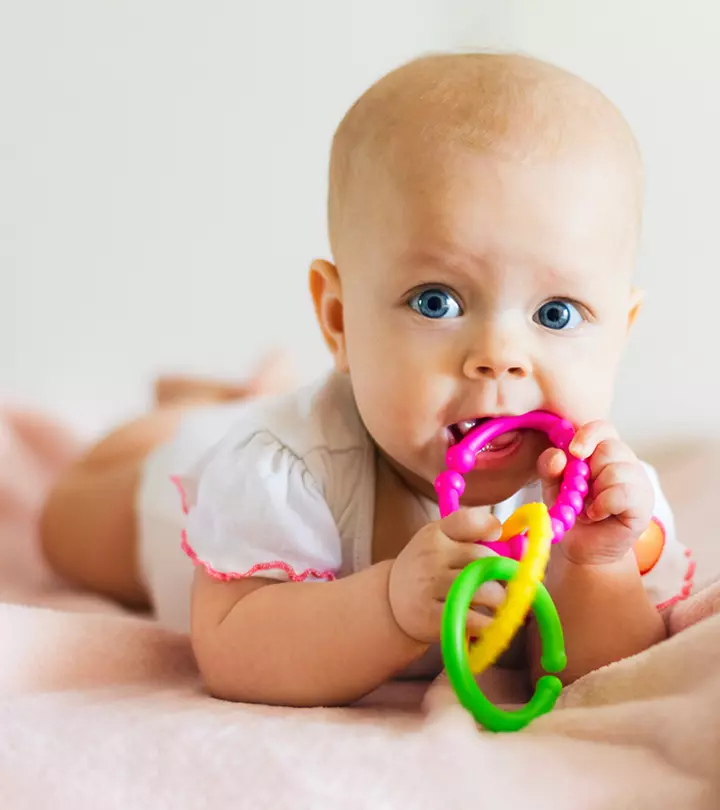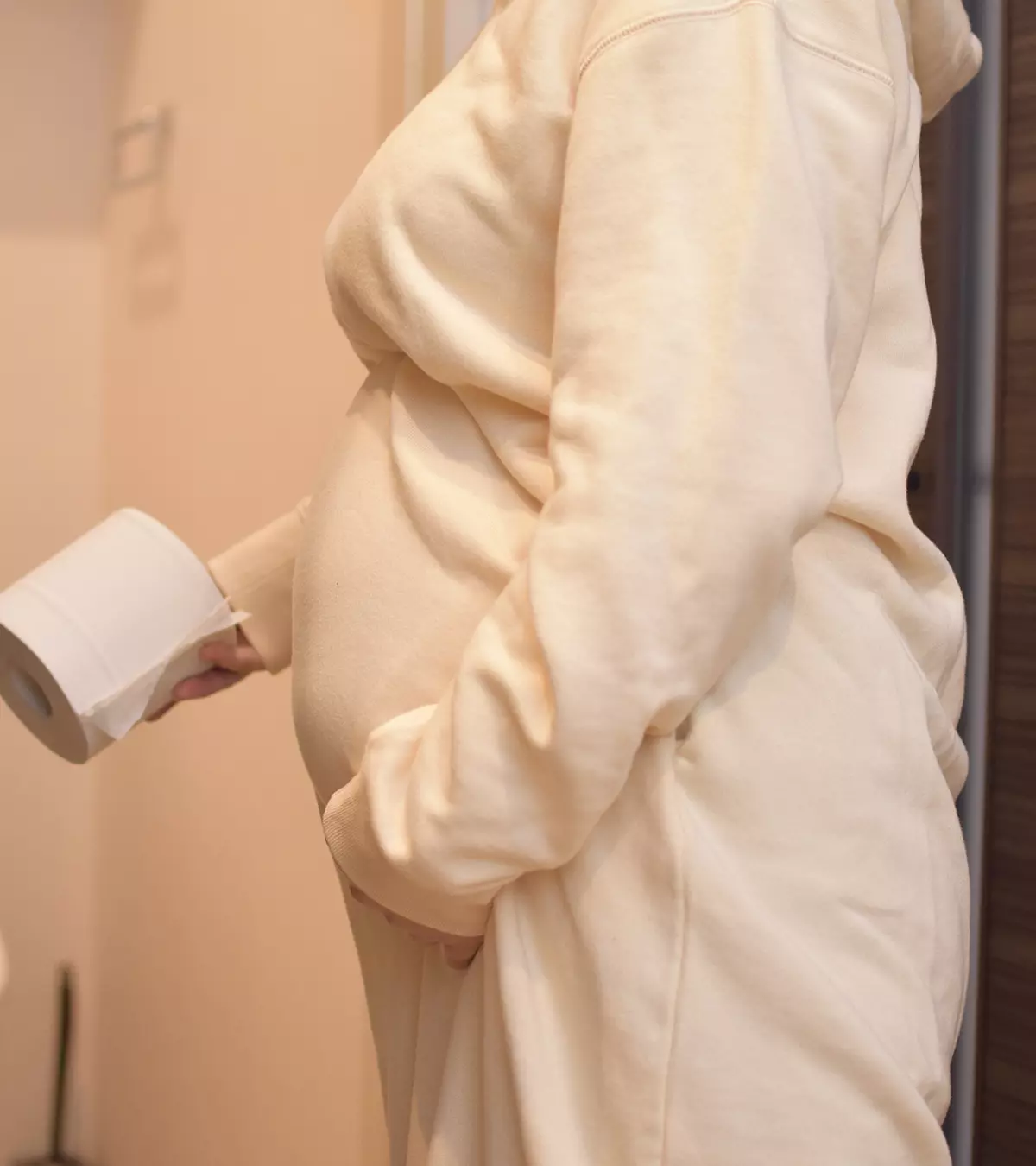
Image: iStock
Gastrointestinal issues during pregnancy are very common. Diarrhea and constipation are common in pregnancy and occur in about one-third of all pregnant women (1). Diarrhea is having three or more loose bowel movements during the day that may or may not be accompanied by stomach cramps (2). Diarrhea during pregnancy is mostly caused by bacteria or viruses (3). Loose stools that continue for more than one day warrant medical care. It may lead to dehydration, which may lead to other health issues (3). Diarrhea accompanied by other symptoms, such as fever, vomiting, rectal bleeding, fluid leakage, or vaginal blood discharge, might need immediate medical attention. This post explains the symptoms, causes, and remedies for diarrhea in pregnancy.
Key Pointers
- Bloating, nausea, abdominal cramps and pain, and weakness are some of the many symptoms of diarrhea in pregnancy.
- It may be caused due to prenatal vitamins, stress, binge eating, and a sedentary lifestyle.
- Consult your doctor immediately if you have severe stomach ache, pus in stool, vaginal bleeding or other serious symptoms.
Symptoms Of Diarrhea
Loose and watery stools three or more times a day may point to diarrhea during pregnancy. It can occur for various reasons, such as hormonal changes, diet, or infection. Drinking adequate water may help stay hydrated during diarrhea. If you are unsure about your symptoms, consult with your healthcare provider The following symptoms may also be seen along with diarrhea (3).
- Abdominal pain or cramping
- Bloating
- Nausea
- Constant urge to have a bowel movement
- Vomiting
- Weakness
- Loss of appetite

Causes Of Diarrhea In Pregnancy
Pregnancy brings several hormonal and other changes. Changes in hormones could also bring along certain variations in the gastrointestinal tract. The following possible factors may lead to diarrhea during pregnancy (3).
- Elevated levels of prostaglandinsiA group of lipids with hormone-like actions that help induce labor in pregnant women. may lead to diarrhea (4). Some hormones may cause one’s digestive process to slow down, leading to diarrhea gradually (5).
- Some women make drastic changes in their diet once they know they are pregnant. These sudden dietary changes may sensitize the gastrointestinal tract, causing diarrhea during pregnancy. This is seen more commonly in the first trimester of pregnancy.
- Excess binge eating of junk food due to pregnancy-related cravings may cause diarrhea.
- Many women are stressed regarding the baby’s well-being during pregnancy. Stress could be a predisposing factor for diarrhea in pregnancy.
- Some women are advised bed rest in pregnancy for certain medical reasons. A sedentary lifestyle may lead to a weak digestive system, causing diarrhea eventually.

- Some women may develop diarrhea due to prenatal vitamins. You may change the brand of the vitamins and see if it helps.
- Morning sickness (nausea and vomiting), acidity, and heartburn during pregnancy are common, especially during the first trimester. Doctors may prescribe some antacids to help you. However, exercise caution when taking antacids during pregnancy and do not take more than the recommended dose, as the magnesium in these antacids may cause diarrhea in some women (6).
- Some food items may cause sensitivity in the GI tract. Even if these items were well-tolerated pre-pregnancy, they might cause an upset stomach during pregnancy.
- If nausea and vomiting return after mid-pregnancy, it could be a sign of preeclampsiaiA complication characterized by high blood pressure , which is estimated to occur in five to seven percent of all pregnancies, as per a CDC report (15).
 Be watchful
Be watchful- Diarrhea during pregnancy may occur a week or two before the labor. However, if you experience diarrhea during the third trimester, it does not necessarily mean that labor is approaching. You should also check other signs of approaching labor before getting alarmed (5).
Becky, a mother to two, shares her experience of dealing with diarrhea during the last trimester of her pregnancy. Having already lost her mucus plug and being in the process of dilation, she wonders if this could be a sign of approaching labor. She says, “A couple of weeks ago, I started to have loose stools… Things loosened up for me these last few weeks. When it first happened, I thought, ‘Maybe this is a sign!’ Well, today, I’ve had a little diarrhea. Nothing too major, but enough to get me thinking (once again), ‘Maybe it’s time!’
“Anyway, I suppose it could just be a coincidence, but with the dilation and loss of mucus plug, I can’t help but think labor is going to start very, very soon (i).”
The following causes are not pregnancy-related but may still lead to diarrhea during pregnancy.
- Food poisoning
- Viral or bacterial infections
- Intestinal parasites
- Traveler’s diarrheaiAn intestinal bacterial infection one may contract from eating contaminated food.
- Crohn’s diseaseiA chronic condition causing inflammation of the digestive tract.
- Irritable bowel syndrome
- Celiac diseaseiAn autoimmune and genetic condition characterized by an immune reaction to gluten, the protein found in barley, rye, and wheat.
- Ulcerative colitis

- Ulcerative Colitis
Sharing her experience dealing with parasites during the 12th week of her second pregnancy, Gypsy Momma writes, “After two weeks of diarrhea-denial (I just keep thinking it would get better?), I started to feel weak, dizzy, and I started to become concerned about the absorption of nutrition for me and my two babies feeding from me. I finally went to the doctor here in Ladybrand, South Africa, and it looks like it’s parasites- probably girardia that I picked up in Jordan when I was there working a few weeks ago.
“There are meds to get rid of the girardia, but many of them are dangerous for the fetus, so instead I’m treating the symptoms with oral rehydration, pro-biotics, and anti-diarrhea stuff (all safe for pregnancy and lactation). My energy has bounced back, and hopefully the parasites will leave soon (ii)!”
Remedies For Diarrhea In Pregnancy
Most cases of diarrhea during pregnancy resolve without medications within a couple of days. The following might help you manage your diarrhea better.
- Hydration: Drink adequate water, broth, and oral rehydration solutions and lemon water to replenish lost fluids and electrolytesiMinerals in the body that carry an electrical charge and regulate the chemical process in the body , such as sodium, potassium, and minerals (5).
- Diet: Eat a healthy balanced diet that has the right amount of fiber to aid proper digestion. Identify and avoid foods that may make diarrhea worse. Avoid tap water and street food when traveling.
Gastroenterologist and nutrition specialist Donald Kirby says, “Plain and simple food is what people usually tolerate very well (11).” - Exercises: Try to include some exercises in your routine. Decide the intensity of your workout under your obstetrician’s guidance. Exercising improves blood flow to all organs, including the bowels (3).

- Medicines: If diarrhea does not resolve on its own, the doctor might prescribe some medications for it. The doctor will prescribe the safest dose and medicine, depending on your overall health (3).
- Probiotics: Probiotics, such as yogurt or supplements, may also help restore gut flora balance and help with diarrhea (14).
If the diarrhea persists or worsens, contact your healthcare provider. The doctor will help you identify the cause of diarrhea. If it is caused by bacteria, the doctor will prescribe a pregnancy-safe antibiotic (5).
When To Call The Doctor?
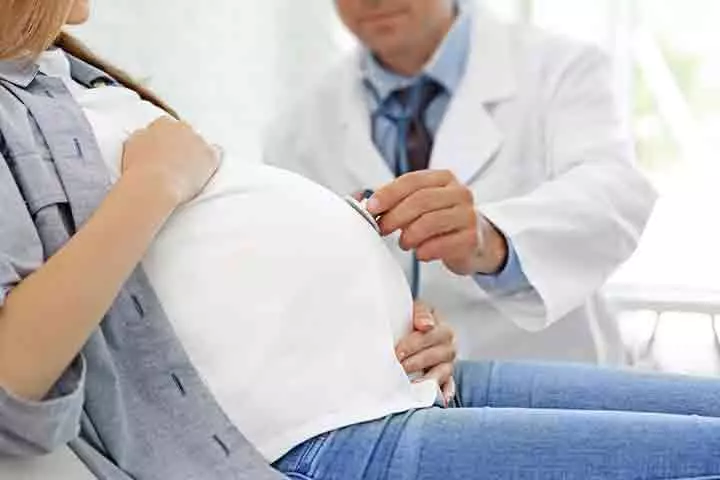
You should call your healthcare provider immediately if you have any of these symptoms, along with diarrhea during pregnancy (3) (7) (8).
- Severe stomach pain
- Pain in rectum
- Lower abdominal cramps
- Vomiting blood
- Pus in stool
- Signs of dehydration ( thirst, dry skin, fatigue, dizziness, less frequent urination, and dark-colored urine)
- Blood in stool
- Fever
- Sudden weight loss
- Leaking of fluid from the vagina
- Vaginal bleeding
- Decreased fetal movement
 Point to consider
Point to considerFrequently Asked Questions
1. Can diarrhea during pregnancy cause miscarriage?
Diarrhea does not always indicate an impending miscarriage. However, diarrhea may occur due to food poisoning caused by salmonella, toxoplasmosis, or listeriosis. These pathogens are associated with an increased risk of miscarriage. If you suspect food poisoning to be a cause of miscarriage or stillbirth, contact your healthcare provider as soon as possible (9).
2. Is diarrhea a bad sign in early pregnancy?
Diarrhea in the third trimester is most common. However, some women experience diarrhea in the first trimester as the body takes some time to adjust to the hormonal changes. It is not necessary to consider diarrhea as a bad sign in early pregnancy, but you must inform your doctor about it.
3. Can I take diarrhea tablets when pregnant?
Loperamide is the choice of drug for short episodes of diarrhea in adults. Research done on about 750 pregnant women who took loperamide showed no adverse effect on the baby. However, more research is needed to establish the safety of loperamide in pregnant women. Your healthcare provider will weigh the risks and benefits and prescribe a safe drug and dosage for you (10).
4. What can I eat if I have diarrhea during pregnancy?
Generally, it is advised to consume a bland diet during diarrhea. The BRAT diet: Banana, rice, apples, and toast; is the most common diet prescribed. It is also advisable to hydrate frequently and drink oral rehydration solutions. Confirm with your doctor if you may follow a similar dietary pattern when suffering from diarrhea during pregnancy (11).
5. Can diarrhea during pregnancy affect the baby?
Persistent diarrhea during pregnancy could impact your eating patterns, which may, in turn, affect your nutritional status. Further, nutritional deficiency during pregnancy could affect fetal growth and development and cause low birth weight and fetal distress (12). Hence, if you have diarrhea during pregnancy, consult a doctor for prompt medical attention.
Diarrhea during pregnancy may occur due to several pregnancy-related factors, such as hormonal changes and excessive eating due to cravings. It may also occur due to food poisoning or ulcerative colitisiA chronic disease of the large intestine characterized by inflammation and ulcers. , which are not related to -related. Staying hydrated and making the right dietary changes can help manage diarrhea at home. However, consult your doctor if diarrhea persists or worsens even after taking appropriate measures. Immediate medical intervention is required if you experience additional symptoms, such as fever, abdominal pain, and dehydration.
Infographic: When To Seek Assistance For Diarrhea During Pregnancy
Watery stools during pregnancy may occur for various reasons, from spicy food to stress and hormones. In most cases, diarrhea can resolve independently; however, if you observe any of the symptoms in the infographic below, promptly call your healthcare provider or visit the clinic.

Illustration: Momjunction Design Team
Illustration: Diarrhea During Pregnancy: Causes Symptoms And Remedies
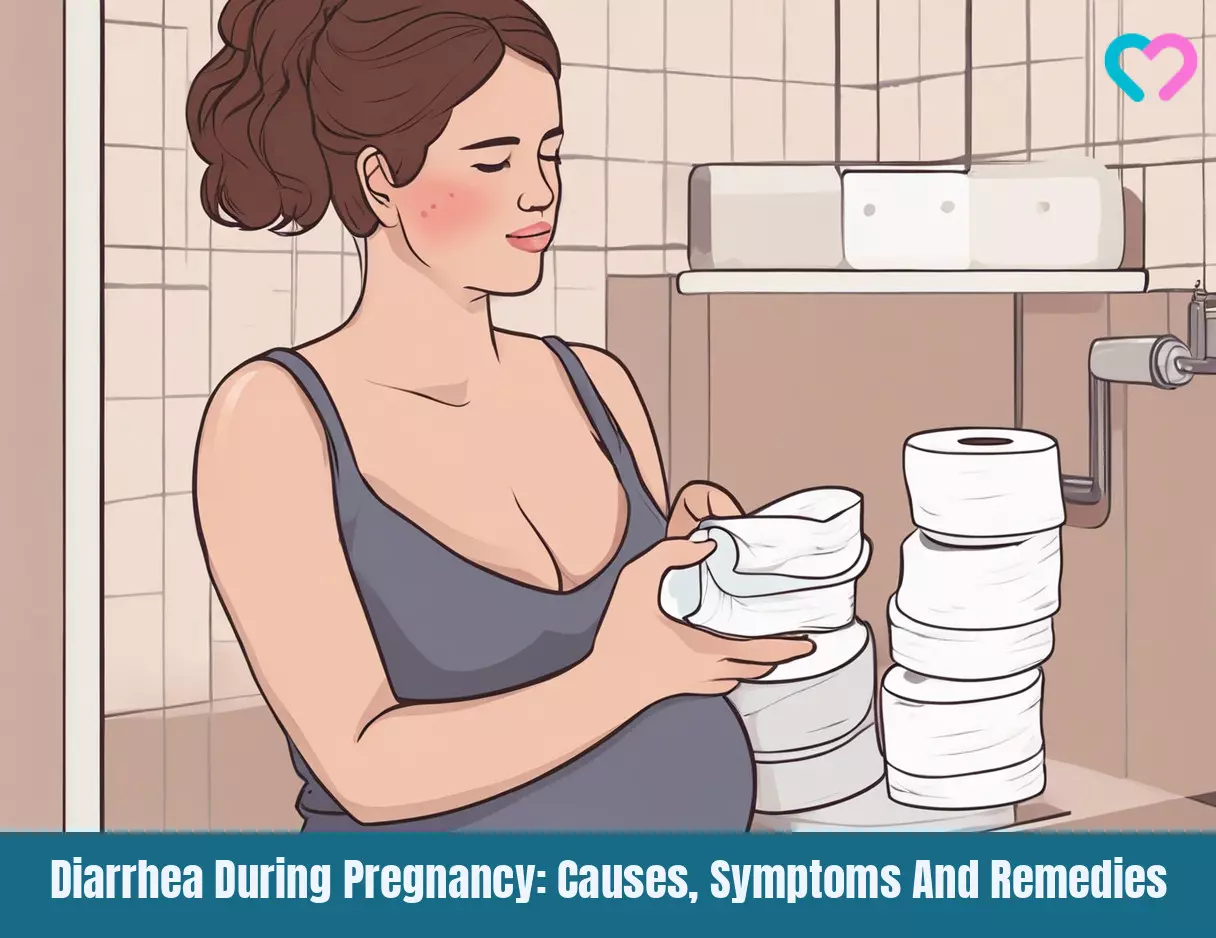
Image: Stable Diffusion/MomJunction Design Team
Looking for pregnancy-safe ways to relieve diarrhea? Learn what causes this digestive issue and how you can maintain gut health during pregnancy with simple lifestyle changes.
Personal Experience: Sources
MomJunction articles include first-hand experiences to provide you with better insights through real-life narratives. Here are the sources of personal accounts referenced in this article.
i. I’m going to make it (after all);https://becky-shattuck.blogspot.com/2011/11/still-here.html
ii. Pregnant, breastfeeding, and parasites;
https://gypsymommadotcom.wordpress.com/2011/11/08/hello-world/
References
1. E.S. Bonapace Jr and R.S. Fisher, Constipation and diarrhea in pregnancy; National Center for Biotechnology Information
2. Problems of the Digestive System; American College of Obstetricians and Gynecologists
3. Gastrointestinal Issues During Pregnancy; Lifespan Health System
4. Cameron Body and Jennifer A Christi, Gastrointestinal Diseases in Pregnancy: Nausea, Vomiting, Hyperemesis Gravidarum, Gastroesophageal Reflux Disease, Constipation, and Diarrhea; National Center for Biotechnology Information
5. Diarrhea in Pregnancy; American Pregnancy Association
6. M. Wienbeck, J. Erckenbrecht, and G. Strohmeyer, Effect of antacids on intestinal motility; National Center for Biotechnology Information
7. Diarrhoea and vomiting in pregnancy; Tommy’s
8. Premature Labor; Cleveland Clinic
9. Signs of Miscarriage; European Commission
10. Loperamide; UK Teratology Information Service
11. Mom’s advice is still the best for treating diarrhea; Cleveland Clinic.
12. Maternal nutrition; UNICEF.
13. Treating Lactose Intolerance During Pregnancy; American Pregnancy Association
14. Probiotics During Pregnancy; American Pregnancy Association 15. Preeclampsia, Genomics and Public Health; Centers for Disease Control and Prevention
Community Experiences
Join the conversation and become a part of our nurturing community! Share your stories, experiences, and insights to connect with fellow parents.
Read full bio of Dr. Shashwat Jani
Read full bio of Dr. Ritika Shah
Read full bio of Rebecca Malachi
Read full bio of Dr. Joyani Das











